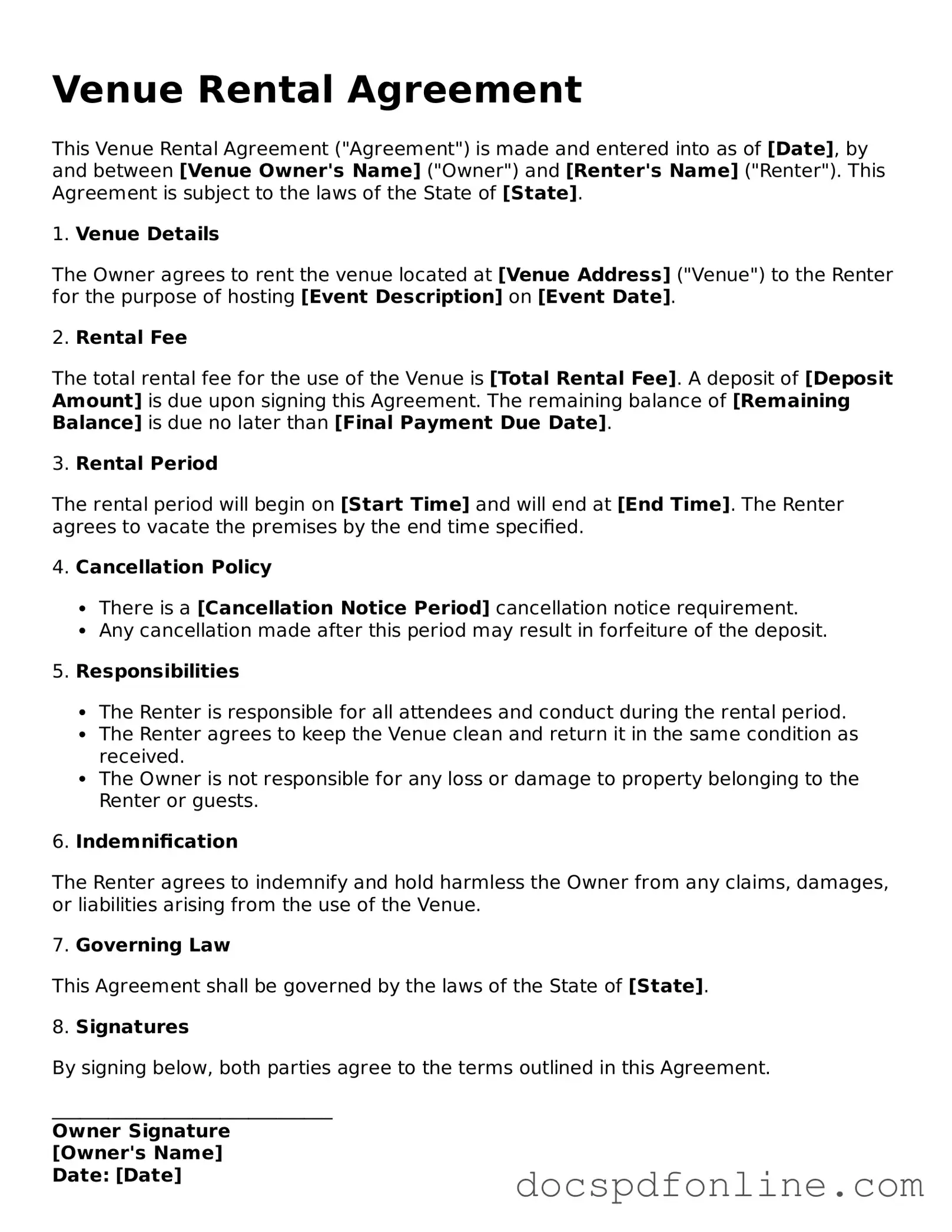Attorney-Approved Venue Rental Agreement Document
A Venue Rental Agreement is a legally binding document that outlines the terms and conditions under which a venue can be rented for events. This agreement protects both the venue owner and the renter by clearly defining responsibilities, payment terms, and rules for the use of the space. Understanding this form is essential for ensuring a smooth and successful event experience.
Launch Editor Now

Attorney-Approved Venue Rental Agreement Document
Launch Editor Now
Save time — finish this form fast
Finish Venue Rental Agreement online — edit, save, download made easy.
Launch Editor Now
or
↓ PDF File
